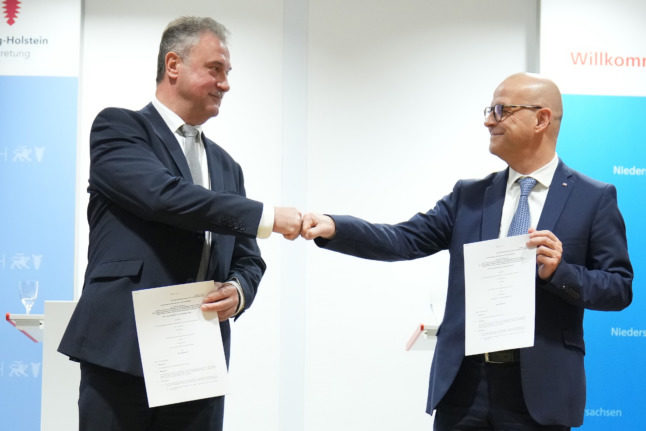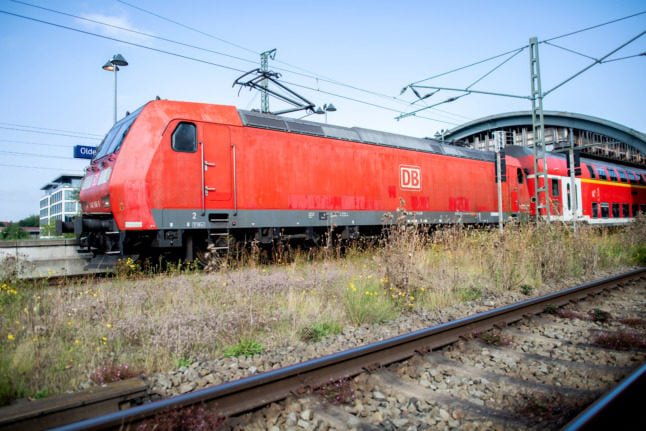In a Thursday press conference announcing the move, GDL union chief Claus Weselsky said the “compromise” deal was what train drivers had “earned”.
Pay will initially rise by 1.5 percent from December this year, followed by a further 1.8 percent on March 1st, 2023, both sides announced on Thursday.
READ ALSO: Are the German rail strikes going to end soon?
On December 1st, employees will get a Covid bonus of up to €600 in their pay-packets, with the exact amount depending on their wage bracket. On March 1st, 2022, Deutsch Bahn will also grant its employees a €400 bonus across the board.
The agreement on wages is very similar to that set out by the GDL train driver’s union in its negotiations with Deutsche Bahn.
For months, it had been calling for 3.2 percent pay rise spread over 28 months, along with a €600 bonus to reward employees for working throughout the pandemic.
In return, however, the GDL has agreed to the planned restructuring of the company pension scheme.
The current system of supplementary pensions will only be continued for existing employees from 2022, it said. For the first time, the GDL is concluding collective agreements not only for train crews but also for employees in workshops and in administration, but not for infrastructure.
‘Back on track’
Standing alongside the union boss, Martin Seiler, the personnel director of the rail company Deutsche Bahn, said: “This agreement puts us back on track for a strong future.”
The union began its walkout on August 10th after members voted overwhelmingly in favour in an internal ballot.

DB Personnel Director Martin Seiler and GDL chairman Claus Weselsky shake hands on their newly agreed deal at a press conference held on September 16th, 2021. Photo: picture alliance/dpa | Kay Nietfeld
During three rounds of strikes, the longest of which lasted five days, passenger and cargo services were disrupted across Germany, adding to supply-chain woes for businesses and causing headaches for holiday-makers.
READ ALSO: German rail chaos continues after two failed attempts to prevent strikes
The agreement also resolved differences over the status of the train drivers’ union within Deutsche Bahn itself. GDL was set to lose out to other unions after rules came into force earlier this year which stipulated that the collective deal negotiated by the biggest union applies across the sector.
The last major conflict between unions and Deutsche Bahn took place between 2014-2015, when over nine months, GDL organised nine rounds of strikes to demand regulatory reforms.



 Please whitelist us to continue reading.
Please whitelist us to continue reading.
Member comments